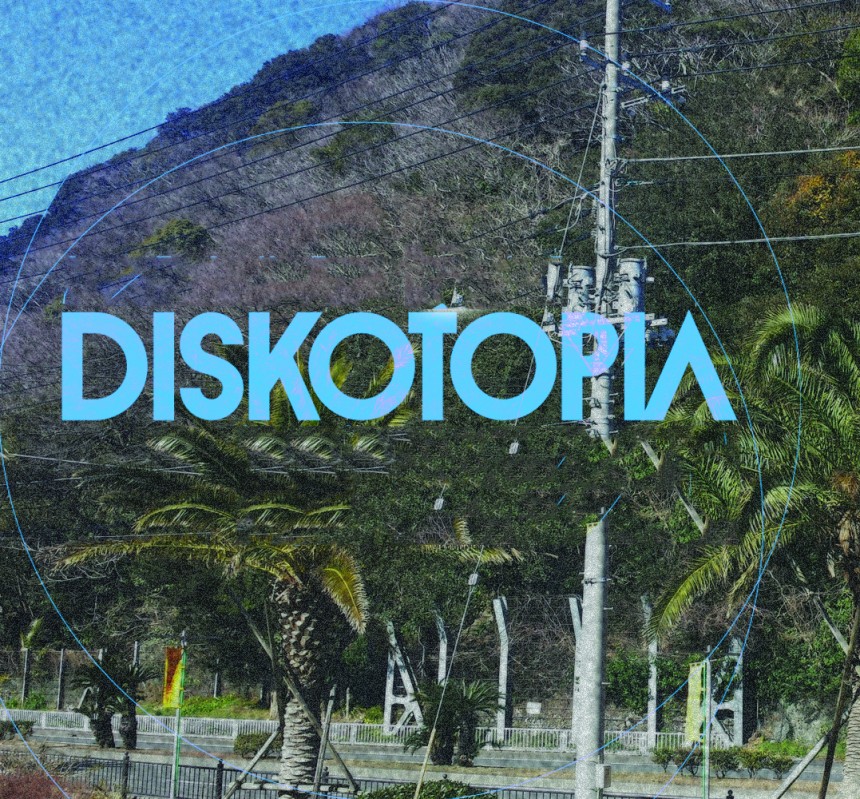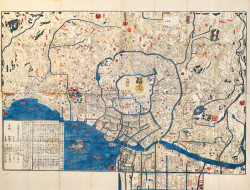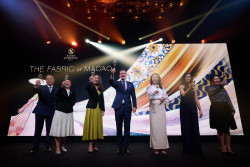
Metropolis met with Tokyo-based Diskotopia record label founders Matt Lyne and Brian Durr to find out more about what it takes to run a record label in the digital age. Lyne and Durr, from England and the US respectively, discuss music, the business side of things and connecting with audiences.
Metropolis: How did you set up Diskotopia?
Brian Durr: Matt had been running Diskotopia as a DJ and visual collective in Osaka since about 2005 with Am Rhein. In late 2010, we decided to evolve Diskotopia into the barrier-free record label it is today. Matt and I both come from similar and also dissimilar musical backgrounds so it’s a lot of fun to find certain artists and releases that we both are really excited to put out. We both really enjoy the curation process that goes into building a distinct narrative and voice that we hope has come across in the label’s catalog.
Matt Lyne: When I met Brian through DJing at similar events in Tokyo I was hit by the parallelism in our tastes and music history, especially coming from the other side of the world, but also non-intersection parts of the Venn diagram are just as crucial in order to bounce yet balance your tastes, approaches and ideas.
M: Is it difficult to run a label as a foreigner in Japan?
BD: Not really, as much of our business takes place outside of Japan anyway. We work with artists in many different countries and Tokyo is basically just an operations base. Personally, I feel like the democratization of how artists and labels present themselves and find their audiences through the internet has subtracted the localization element of music in a big way. There’s not really a new sound, or “scene,” that crops up that doesn’t get picked up elsewhere almost immediately; which is a good thing, I think.
ML: Geography isn’t really a factor anymore — just for boring stuff like where you are registered for tax and stuff — but besides that, you can be based anywhere to write, produce music and put out music from other artists and then have it in shops internationally.

M: In addition to releasing music from artists such as Wally Badarou you release your own music under the name A Taut Line and BD1982. Is it difficult to divide your time between being an artist and a label owner?
BD: It’s definitely a challenge to balance time between label business, personal projects and life in general but I think after some time you get into a rhythm to get all the boxes ticked.
ML: Time management is crucial, especially when you have a family of your own, a day job and other stuff to juggle with label and music stuff. If we’re putting out a lot of releases from different artists close together, I do feel a knock-on effect on my own productivity, as I do all the artwork and videos for all the releases.
M: Which of the Diskotopia releases are you most proud of and why?
BD: All of them!
ML: We both think very carefully about all the music we release — selecting things for their timeless quality — and never do anything on a whim, so everything is of an equal level. Although putting out a record from a legend and personal hero like Wally Badarou has to have a mention here.
M: Where do you see the label going in the years ahead? Any plans or changes?
BD: I think we’re both content to let things marinate and when certain projects come together or are presented to us, we’ll continue down the path we’ve set out on. There’s no sense of urgency or pressure to rush things out and [we] would much rather take our time developing something that would be easy to revisit years down the line.
M: Are there any artists who excite your right now? Both in Japan and overseas?
BD: A few artists off the top of my head would include Omen, Kamilita, Lewi Boome, Only Now and Carla Dal Forno.
ML: A few of the exciting Japanese artists that we’ve been lucky to work with on the comps have been making big waves internationally: 食品まつり aka Foodman, Mars89, RGL (Rigly Chang).
M: Do you have any advice for any foreign residents who are looking to set up their own label? Any pitfalls to avoid?
BD: I would just recommend that you do it for the right reasons — any kind of art-related endeavor. What are you bringing to the table that hasn’t already been done?
ML: As Brian says, definitely for the right reasons — and money isn’t one. There is no money in releasing music (unless it’s mainstream Billboard chart stuff) and it costs to release music. You need to get all releases mastered professionally, then there’s artwork, promotion, etc. If you are going to do physical releases you need to pay for vinyl, CD or cassette manufacturing, shipping, etc etc. The more you can do yourself the better, because that way you can save money. So, I do all the artwork for the label which means we don’t have to pay someone else (or feel guilty that someone else is very kindly doing the work for very little — thank you Shaw at Neithercorp, the Osaka-based designer we worked with at the start). But remember, everyone else will get paid but you, so you have to have enough passion to put a lot of work in just as part of the labor of love.
M: You sometimes give away free compilations. How important is this in relation to keeping and communicating with your customers and fans?
BD: The yearly free compilations that we’ve done, starting in 2014, have been a really great way to work with a variety of artists in our general orbit and to reach out to a much bigger audience than with individual catalog releases at times. The direct connections that can be made with fans and peers through platforms like Bandcamp have been really great to see developing over the past few years.
ML: We started doing the free compilations as a way to say thank you to all the people who have supported us over the years and also as a platform to release music from us and people around us — artists we’ve worked with in some way; music that didn’t have an official “home” but high enough quality to share with listeners all over the world. Recently I’ve seen some discussion online where established artists have been vocally “warning” up-coming artists to avoid giving their music to people that will put it out for free because all “content is worth money”… that by putting out good quality mastered music for free we (or whoever) are “devaluing the currency of music.”
https://soundcloud.com/diskotopia/
I don’t like to think that what we have done over the last four years might be seen as “problematic,” especially when it has come from a genuine good intention, and not as a way to exploit artists, using others’ content for self-publicity or profits. A lot of the compilations are made up of our own music as well as other artists, we put a lot of effort into the artwork and promotion videos and other material for them, and then run them at a loss to start with because we pay to have the fifteen-twenty tracks mastered — which isn’t cheap, especially when the finished product is free.
M: You hosted a regular radio show at Red Bull studios in Tokyo (now on hiatus). How did that come about and do you think you will return to it at one point?
BD: Diskotopia Radio was a great experience as we were fortunate enough to meet many talented people and share some great music together. We put the show on hold to put more focus back on the actual label side of things as a weekly two-hour radio show that went on for just over two years understandably started to take its toll. We have every broadcast available to stream at mixcloud.com/diskotopia so it’s a really great time capsule with a ton of exclusive music and slightly funny banter.
ML: Doing the show was a lot of fun, and we got to meet and work with a lot of really great people over the two and a half years we were doing it, but it was quite full on, and we actually ended up putting out less music on the label during that time because our time and focus was pushed elsewhere. I’m glad to be back focused on putting out music — our main passion — as it’s a much more sustainable pursuit.
For more information on Diskotopia check their homepage.







